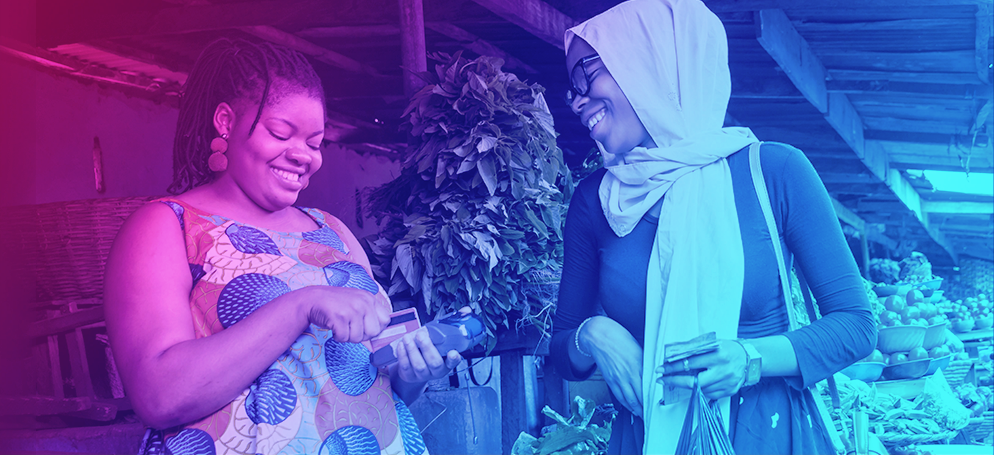
3 things to know about Nigeria
Nigeria is Africa’s largest economy and most populous country, with huge growth potential in the years ahead. Here are three things you need to know.
Nigeria is moving towards a cashless society
Last month, the Central Bank of Nigeria announced a cap on customer ATM withdrawals. This means that:
- Customers are limited to withdrawing the equivalent of $45 per day.
- This is a significant reduction to the earlier daily cap of $337.
- Businesses are capped at withdrawing $1,124 per week.
These caps are designed to reduce the use of cash and to promote the use of Nigeria’s digital currency, eNaira. Nigeria’s goal is to move to a cashless society, a policy announced by its Central Bank in 2012. The policy has three objectives:
- To reduce the costs associated with cash handling.
- To improve access to digital payment channels.
- To enable greater transparency in payment systems for a more effective monetary policy.
Initially, the cashless policy was piloted in Lagos before spreading to other parts of the country. However, despite an explosion in fintech between 2012 and 2022, there has been limited progress towards digitising the bulk of everyday payments for the average Nigerian. You still need cash to board commercial transport or buy goods from your local store. Business people often prefer cash to other forms of payment, with Point of Sale machines being expensive and mobile transfers sometimes being slow or unstable. Nigeria’s economy is largely informal, with cash outside banks representing 85% of currency in circulation. Around 40% of Nigerian adults don’t have a bank account.
Cash is so popular in Nigeria that spraying money is a popular tradition at Nigerian parties, such as weddings or birthdays. Where dancing or music is involved, Nigerians will spray money as a sign of celebration – similar to how confetti might be sprayed in Western culture.
Nigeria wants only native-born talent to appear in advertising
Last October, Nigeria banned foreign talent from appearing in advertising. For many years, a high proportion of adverts in Nigeria have starred white actors and have often been narrated by people with British or American accents. But more recently, there’s been a desire to see Nigerians rather than foreign nationals portrayed in national adverts. The hope behind banning foreign talent is that it will boost opportunities for home-grown talent and channel more creative projects in the country.
Aside from advertising, there has been a broader desire in Nigeria in recent years to foster local industries rather than relying on foreign ones. For example, in 2018, the Nigerian government banned the importation of foreign-produced rice – one of the most consumed staple foods in Nigeria. As a result, there has been a boost in the local production and quality of rice, with a number of young Nigerians becoming rice-farming entrepreneurs.
There is significant growth potential in UK/Nigeria trade
In the year to June 2022, the total of value of trade in goods and services (exports plus imports) between the UK and Nigeria stood at £5.5 billion. (UK exports to Nigeria accounted for £3.3 billion during this period, whilst Nigerian imports to the UK amounted to £2.2 billion.) This makes Nigeria the UK’s 42nd largest trading partner, accounting for 0.4% of international trade.
Currently, these figures are relatively modest, compared to other countries with which the UK does business. But as Africa’s largest economy, Nigeria has huge growth potential:
- Its 2021 population stood at nearly 220 million, and by 2050, is forecast to hit 377 million to become the world’s third most populous country.
- It has resource wealth – in addition to oil reserves, it has fertile land and significant deposits of minerals such as tin, iron core, coal, limestone, niobium, lead and zinc.
- Its geographical location means it is well located to be a gateway to Africa, and a natural hub for trade between America and Asia.
- For UK businesses, there is a familiar legal system, strong ties through a diaspora community, and a perception that British brands offer high quality.
That said, there are hurdles too. These include:
- Infrastructure constraints – including utilities such as power and water, transport (roads, ports, rails and airports) and ICT (telecommunications and media connectivity).
- Expensive and scarce financing (trade and working capital).
- Skills shortages, security concerns and a higher cost of doing business.
The UK and Nigeria have a forum in which to discuss trade and investment. This is the UK-Nigeria Economic Development Forum, which was launched by then British PM Theresa May and Nigerian President Muhammed Buhari in 2018. At its most recent meeting last November, both sides confirmed their interest in pursuing an enhanced trade and investment relationship.
. . .
Planning an international digital marketing campaign in 2023, in Africa or elsewhere? Oban can help. To find out how, get in touch.
Oban International is the digital marketing agency specialising in international expansion.
Our LIME (Local In-Market Expert) Network provides up to date cultural input and insights from over 80 markets around the world, helping clients realise the best marketing opportunities and avoid the costliest mistakes.